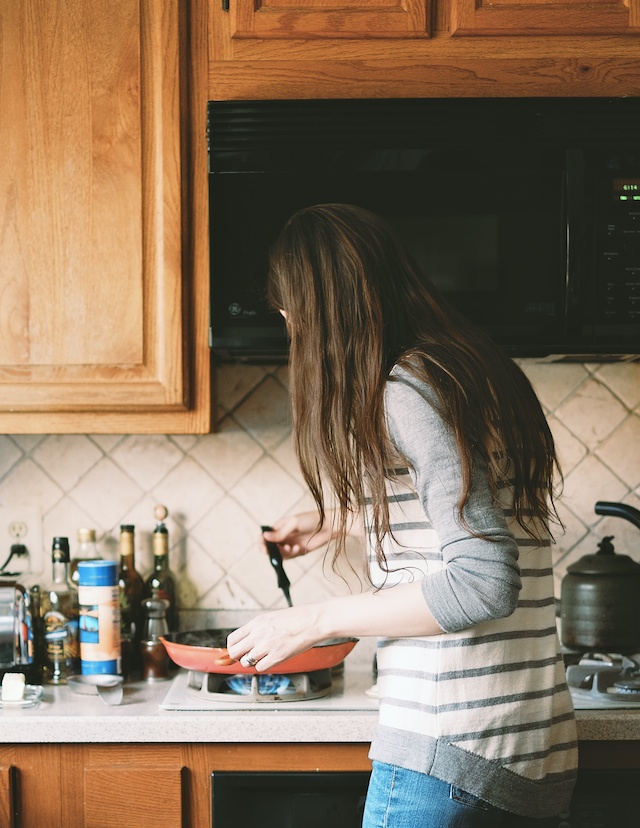
I have a problem with recipes. I think people place way too much confidence in them. Most people don’t realize that recipes are subjective. It doesn’t matter how many times it has been tested, how well it has been written, a recipe can still fail you. But it’s not necessarily the recipe’s fault, or even the recipe writer’s, because they can’t be in the kitchen with you. They don’t know if your oven is lying (it probably is), if your garlic is abnormally pungent, how your kitchen’s altitude or heat level or humidity will change cook times, or if your olive oil has gone rancid. The only one who can know this crap is you.
This level of responsibility can be kind of scary, especially when you’re first learning the ins and outs of cooking. But it’s also kind of empowering if you think about it, because it means that your palate and your opinion is valid. So if your recipe says “sauté for 5 minutes” and your veggies still aren’t as done as you’d like, you can (and should) keep cooking. If a recipe tells you to “add one teaspoon of salt” but it still tastes bland, add more. If your soup recipe calls for green beans but you hate green beans, use something else. Because the whole point of cooking is to feed yourself, and if you don’t like the taste, that’s really your problem isn’t it?
If you are going to cook, you need to taste. Everything. All the time. This is the only way you’ll learn just how spicy you like things, which brands of mustard are the strongest, how done you like your eggs, and how to generally make food you will actually enjoy eating.
Whenever I’m about to serve a dish I typically stand over the pan and taste, sometimes four or five times, adding salt or acid or sweetness until I’m happy with the flavor. I never measure salt or pepper (or most things) in my recipes. Just add and taste and add and taste. Witnessing the evolution of a dish from unseasoned to finished and balanced teaches me a lot, and makes it possible for me to get a dish to taste as good as I know how to make it before it hits the table.
I’m a proponent of the idea of “doctoring up” prepared foods when you are a brand new cook. It’s a little less intimidating to customize a jar of pre-made spaghetti sauce or bowl of ramen than it is to make your own from scratch. The ultimate goal will obviously be for you to be able to make your own everything from raw ingredients, but if you find cooking overwhelming, doctoring up pre-made food is a good way to learn how different seasonings effect your food and just what you like. Experiment with salt levels, pepper levels, adding tabasco, lemon juice or honey (even to something savory), extra garlic if you like it, fresh herbs – anything you want. Taste it before you make an addition and after, then make note of the difference.
Incorporating the habit of tasting into your cooking will help you discover new likes and dislikes and, without even realizing it, you’ll develop a culinary intuition that will make cooking a lot less stressful. So take your recipes with a grain of salt from now on, and trust your taste above all else.